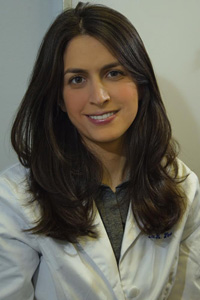Almost every day I’m asked, “Where is the scientific proof that acupuncture works?” Or people say, “I cannot believe in Chinese medicine because there is no scientific research to prove that it helps people.” Here’s the truth: there is scientific research on the efficacy of acupuncture, but it is not conclusive by Western scientific standards.

We all learned the scientific method as a child. We form a hypothesis, make a prediction from the hypothesis, do an experiment, and then review the findings to form a conclusion. The key to proving whether a hypothesis is right or wrong lies in the scientist’s ability to repeat the exact same test and results over and over again. Western science typically dictates that tests of hypotheses vary gradually—variations in tests try to isolate single variables and assess their impact. However, a bedrock principle in acupuncture and Chinese medicine writ large is treating every patient holistically. This usually means that even patients with the same exact diagnosis will receive a unique treatment.
In Chinese medicine every diagnosis is based on the individual, not the disease. This approach differs from Western medicine where diseases have specific treatment regimens. For example, when people come to me because they’re suffering from insomnia, I could treat them in many different ways depending on the nature of their insomnia. First, I would feel their pulse. If it was weak it could indicate a blood deficiency, which might mean they have trouble staying asleep. If it is wiry it could mean liver qi stagnation, so they may have difficulty falling asleep. A fast pulse can mean heat, which manifests as restless sleep. I would also try to find out at what times of night they are not sleeping, or if they are not sleeping at all to help further confirm my initial findings. Each time of the day is associated with different organs, so I will also use this information to determine what is off-balance. I would also ask them about their diet and their mental state. From there, I would determine a Chinese medical diagnosis, such as blood deficiency, liver qi stagnation, or heat. I would also consider a combination of diagnoses, since each person is different. This makes it very hard to have a longitudinal study, within the dictates of Western scientific standards, to confirm that acupuncture can help heal. The only study model that would truly test the efficacy of Chinese medicine would have to accommodate the variation of treatment for every single patient that is key to the Chinese medicinal philosophy.
Scientists often try to prove if acupuncture is effective using the placebo effect. However, the problem with using this key tool of Western science in the context of Chinese medicine is that researchers are still giving the “placebo” test subjects acupuncture—specifically, they use needles in the area of pain to see if the patient feels better. There are acupuncture points called ashi points that are used in the area of pain and don’t have an exact location. Therefore, when a researcher is placing needles in the affected area they are helping with the pain, which renders this “placebo” effect inapposite in forming a conclusion if acupuncture works.
Western science helps us understand how the body works by giving us results. Chinese medicine might not use the scientific method, it may not be an appropriate subject for a longitudinal study, and its effects may not be observable through the placebo effect. But just like modern Western science it gives people results, which is all that is important.
Take a look at some studies that show acupuncture truly works!

Dana Fine is a licensed acupuncturist in the state of Illinois and certified as a Diplomate of Acupuncture by the National Certification Commission for Acupuncture and Oriental Medicine (NCCAOM). She is the owner of Dana Fine Acupuncture, LLC in Northbrook, IL. She graduated with honors from Pacific College of Oriental Medicine (PCOM) in Chicago with a Masters of Science in Traditional Oriental Medicine. Dana treats various issues such as; infertility, headaches, musculoskeletal issues, psycho-emotional issues, and insomnia, as well as many other health concerns. She is currently studying the connection between Chinese medicine and Functional medicine. You can learn more about Dana at www.danafineacu.com